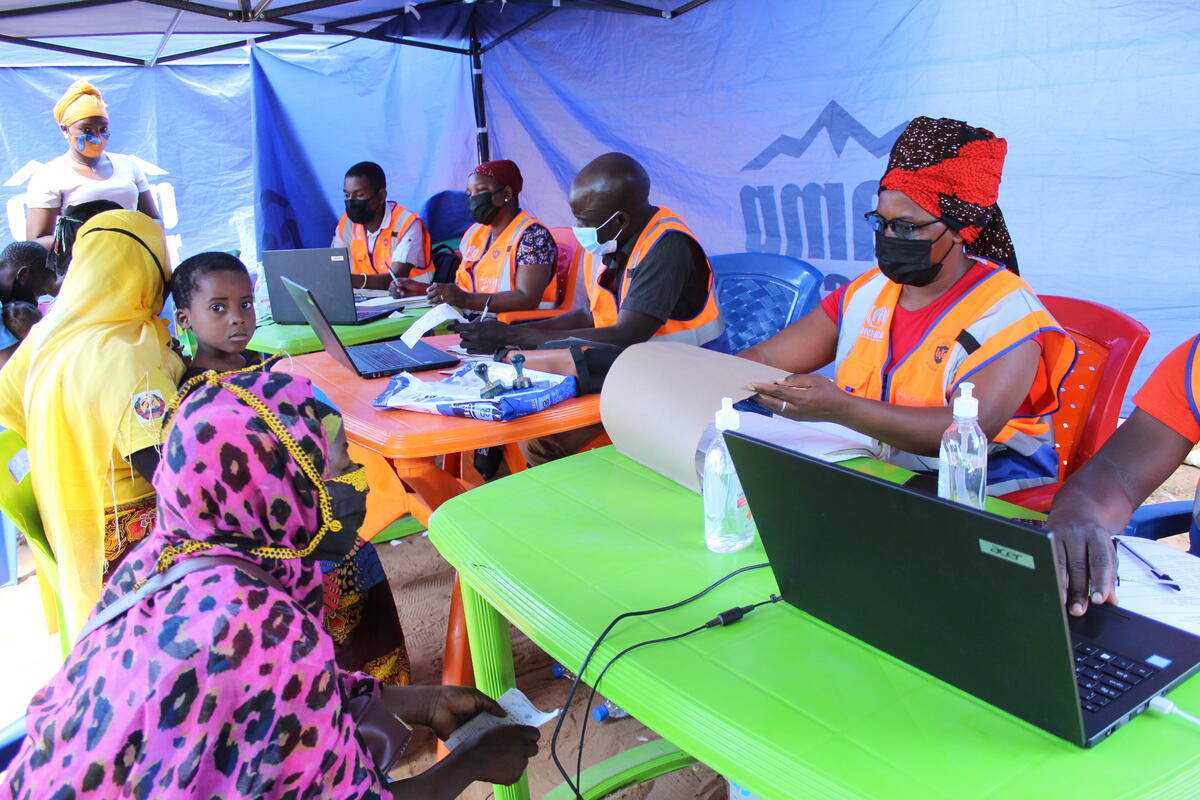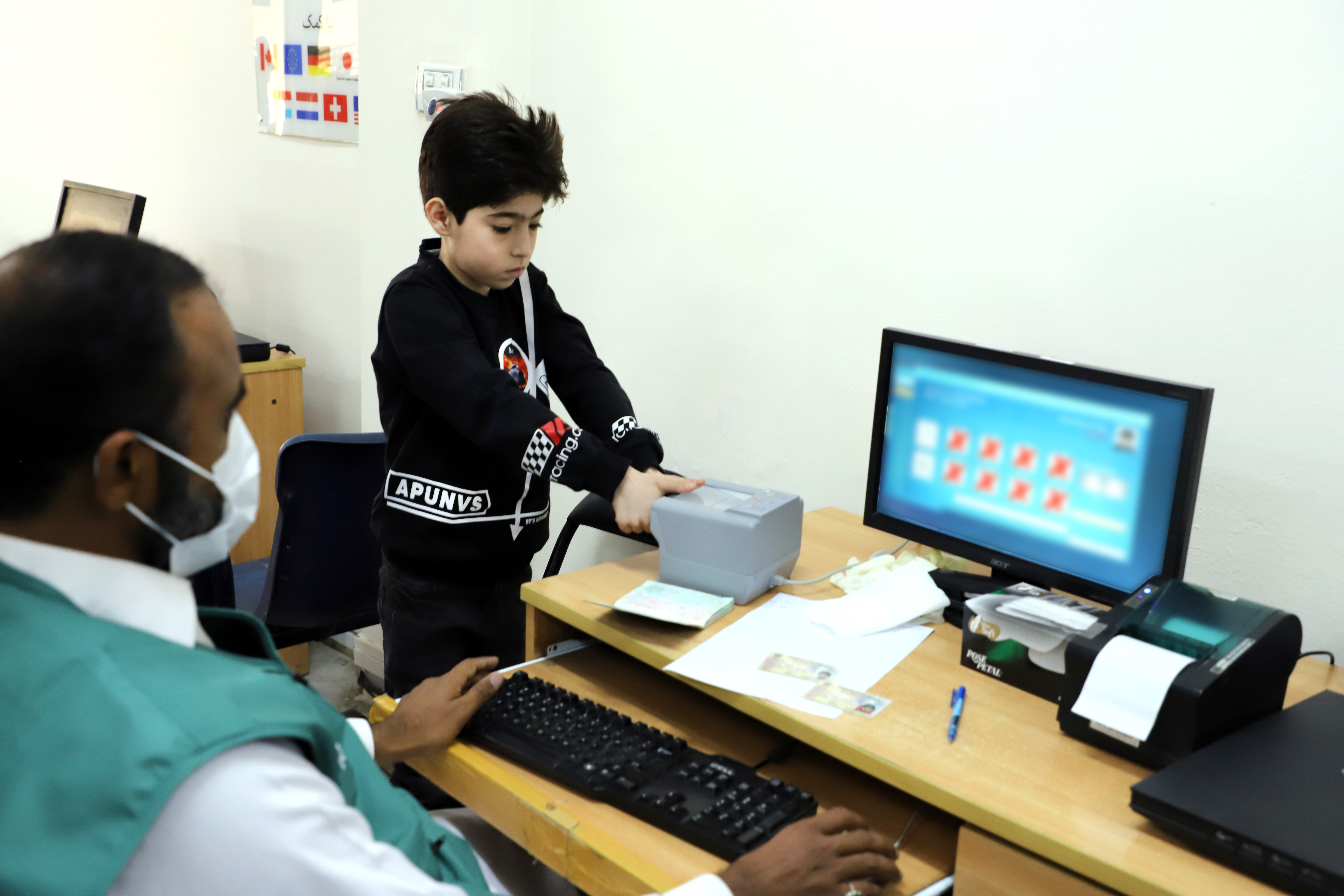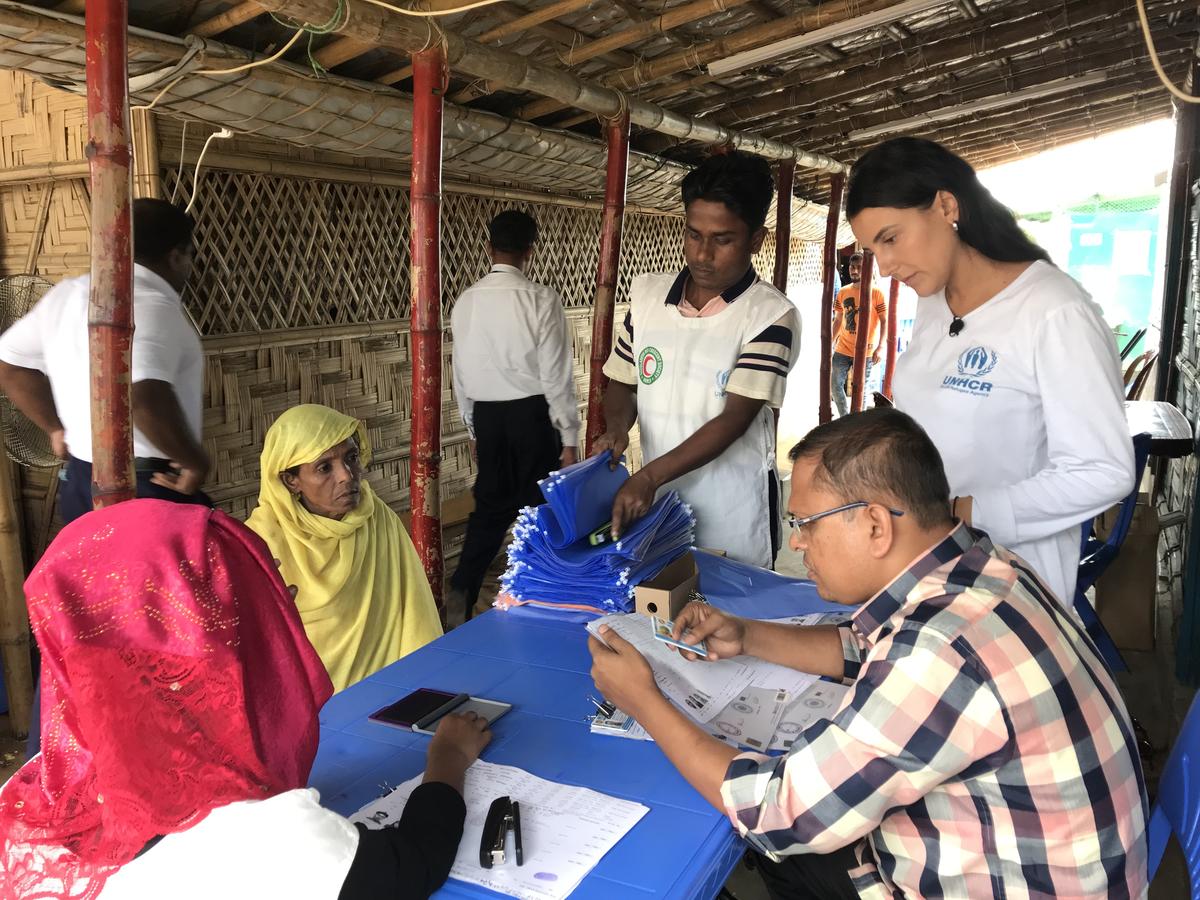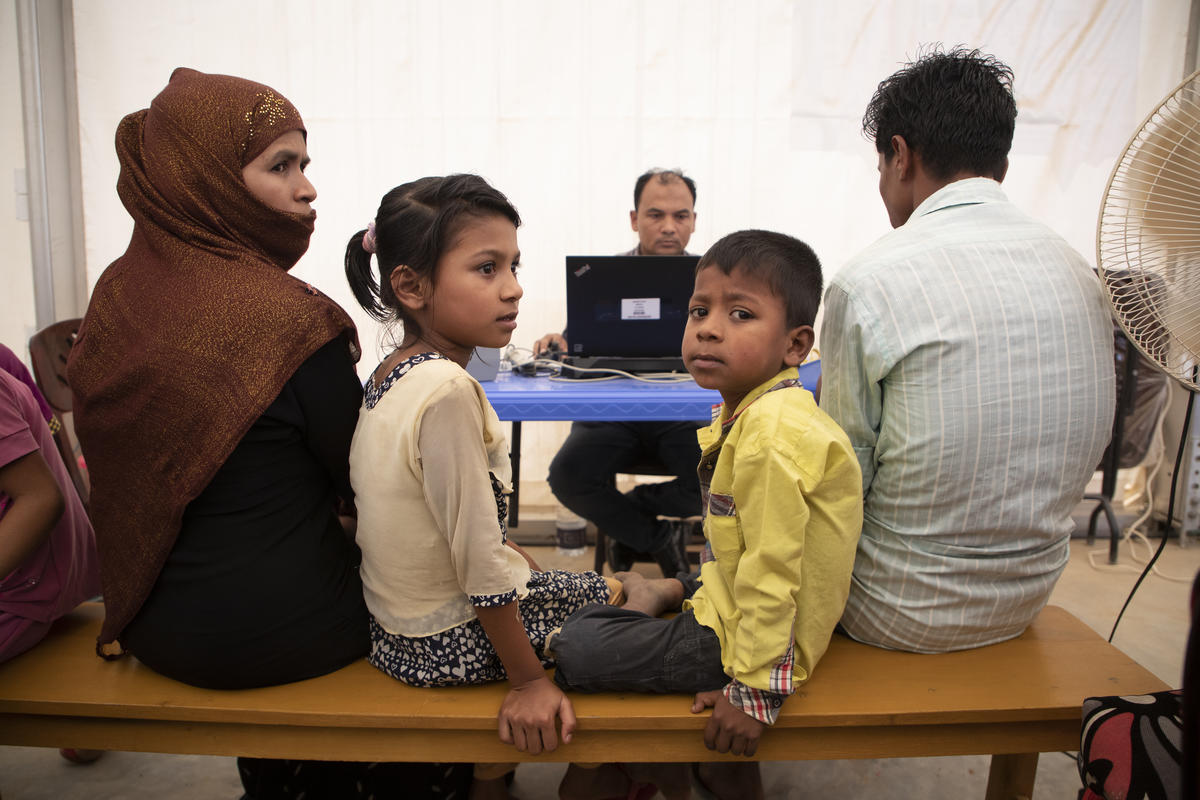"Fotola" - Microsoft and UNHCR team up to better protect refugees
"Fotola" - Microsoft and UNHCR team up to better protect refugees

LUKOLE "B" CAMP, Tanzania, Apr 10 (UNHCR) - Burundian refugee John Bankuwiha stormed into a registration centre in this camp in Ngara, waving a soiled, tattered ration card and shouting, "fotola, fotola."
"Fotola" - Burundi vernacular for "photo" - was his only hope when he suddenly found his name no longer on the food distribution list meaning he was no longer eligible to receive food in the camp. Since having a picture taken is the most memorable part of a registration process which enters their details into UNHCR's database, refugees here refer to the whole system as "fotola".
Perfected and implemented by a team of UNHCR experts known as Project Profile, in partnership with software company Microsoft, the consolidated data system with photographs of each refugee allows the UN refugee agency to keep much more complete details of each refugee and his or her special needs.
John Bankuwiha seemed to view the Project Profile members here as judge and jury. "I am not a makanaki [slang for "dubious refugee"], sir, and I am telling the truth," he said pleadingly, pointing towards the computer. "You will see when you look for my name".
Seconds later, to his enormous relief, his photo came up on the screen, along with details that verified he was indeed a registered refugee with rights to receive food. Confusion had arisen when he earlier registered for voluntary repatriation to Burundi, then changed his mind and stayed in the camp.
Now clearly more relaxed, Bankuwiha said refugees prize the registration system as the only bond to their true identity while in exile in Tanzania. "Once we are registered, we refugees are sure that our records in the computer will not be tampered with," he explained. "This way our rights as refugees are protected and we can get all the assistance we are entitled to in the camps and once we return to our home country."
Project Profile and the registration software program ProGres improve the way UNHCR staffers collect, share and use information on refugees and other persons of concern. The standardized system - replacing dozens of old, incompatible databases - grew out of a mobile registration system designed for the Kosovo crisis in 1999. It gives a more complete picture of the needs of individual refugees, as well as demographic information on camps, and the origins of refugees to help better plan for their return home.
"It's an important tool to help UNHCR better protect refugees," said Deputy High Commission Wendy Chamberlin, who last month took UNHCR's Council of Business Leaders, including a top Microsoft executive, to see Project Profile in action in Lukole "B" Camp in western Tanzania.
"You have no protection if you are invisible," Chamberlin said. "To get this kind of documentation is a basic form of protection, and services flow from that."
Seventy Microsoft employees have so far volunteered their time and expertise to help Project Profile members set up the registration process in UNHCR camps in some 41 countries.
Patrick De Smedt, Chairman of Microsoft Europe Middle East and Africa, a member of the Council of Business Leaders, was impressed to see his company's contributions in action.
"The system handles a broad range of demographic information - the number of men, women, and children - the age of people, the mortality rate, where people come from and what their protection needs are," he said. "It's recorded their medical status and details on food and nutrition. It's a scorecard of sorts, that helps you plan and make sure you have the right material and help available to provide refugees with the services they need."
"It is great to see a real-life demonstration of the system," De Smedt added after visiting the registration centre in Lukole "B" Camp, where refugees are interviewed, their data entered into computers, and a digital photo taken of everyone, even babies.
The ProGres database - with appropriate protection for confidential information - can be shared between UNHCR offices to make repatriations of refugees, for example, go more smoothly. Such comprehensive data help ensure that plans are made to have sufficient classrooms for returning school-aged children, or to assist other returnees with special needs."
De Smedt came away from Ngara excited about the possibilities of expanding the system in the future.
"We have made good progress so far," he said, "but still we have great opportunities to improve the system going forward."
By Roselyn Paul and Kitty McKinsey in Lukole "B" Camp, Tanzania









